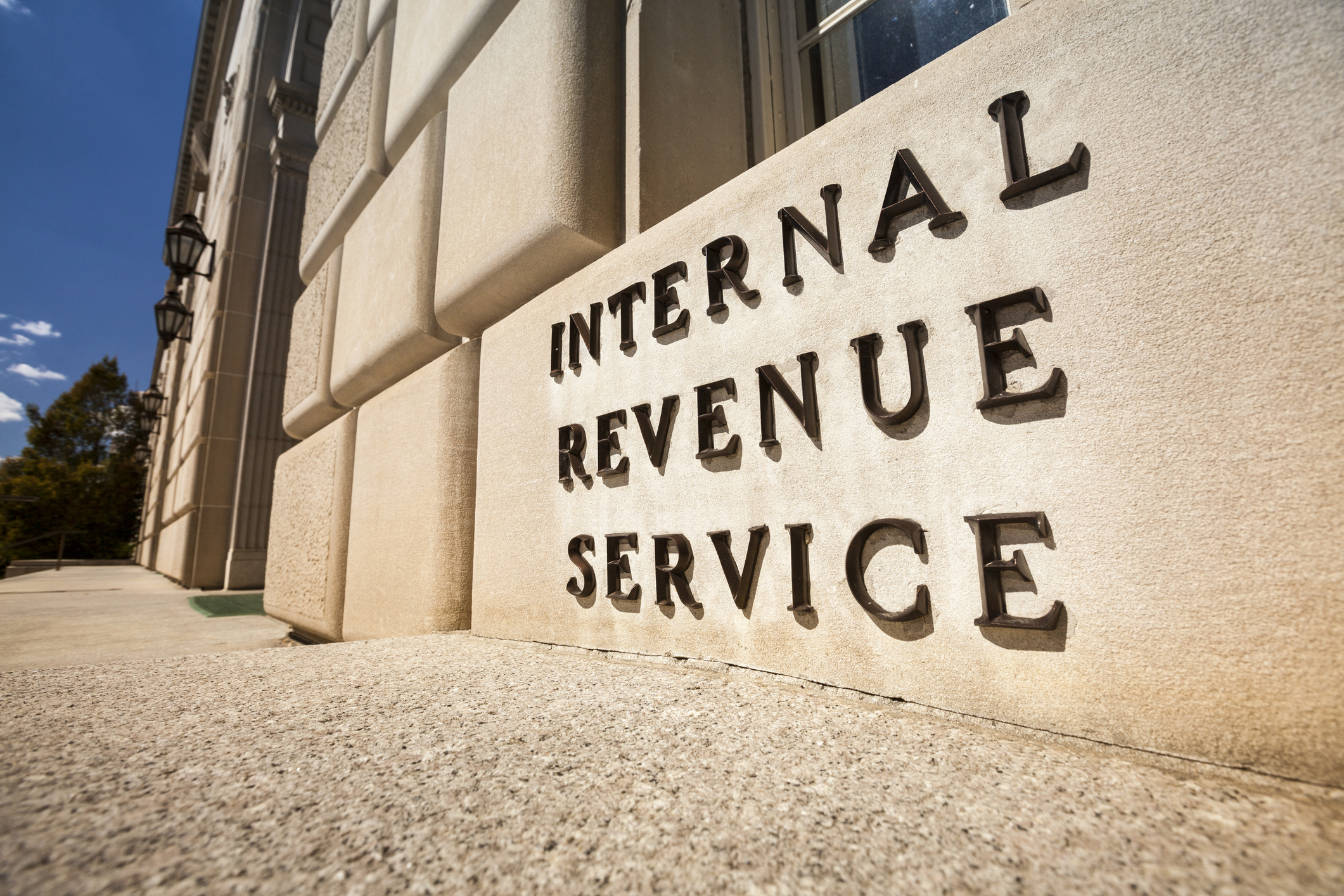Understanding 'Reasonable Compensation' for Business Owners: A Guide for Taxpayers
The concept of "reasonable compensation is a critical aspect for business owners, particularly for those involved in both S and C corporations. Today, let's talk about the 'reasonable compensation' landscape for S corporations.
If you're a shareholder/employee of an S corporation, it could be tempting to turn wage compensation into pass-through income to lessen payroll taxes. The real challenge lies in determining – "Is the salary justifiable?" According to tax guidelines (Rev. Rul. 74-44), any distributions paid instead of fair compensation are classified as wage compensation.
The IRS insists that S corporation owners take a reasonable salary due to the way that these types of businesses are taxed. S corporations are pass-through entities, meaning their income, losses, deductions, and credits pass through to their shareholders for federal tax purposes. The shareholders report this income or loss on their personal tax returns, where it's subjected to ordinary income tax rates, but not payroll taxes (i.e., Social Security and Medicare taxes).
However, if the owner of an S corporation also performs services for the corporation (effectively acting as an employee), the IRS requires them to pay themselves a 'reasonable' salary for these services. This salary is subject to payroll taxes, just like any other employee's salary.
The rule is in place to prevent S corporation owners from avoiding payroll taxes by taking all of their income from the corporation as pass-through distribution profits, rather than as a salary. For example, without this rule, an S corporation owner could pay themselves a tiny salary (or none at all) and take the rest of their income as a distribution, thereby avoiding substantial payroll taxes.
What constitutes 'reasonable' compensation can depend on many factors such as the nature of the business, the extent of the services provided by the owner, and what similar businesses pay for those services. If the IRS determines that an S corporation owner's salary is unreasonably low compared to their distribution profits, it can reclassify some of those profits as wages, leading to back payroll taxes and penalties. Hence, it's crucial to set a salary that accurately reflects the owner's contribution to the business.
Remember, this rule applies only if you, as a shareholder, perform services for the S corporation. Non-active shareholders aren't required to draw wage compensation. Despite clear guidelines, the compliance with 'reasonable compensation' often takes a backseat, resulting in potential losses to the public treasury, as highlighted in a recent report.
It's essential for us to respect these regulations. Ignoring non-compliance can lead to hefty penalties. A fellow tax professional ended up settling a case for $34,500 due to such an oversight.
'Reasonable compensation' has implications on several aspects of your financial life:
- Payroll Taxes: If we manage to reduce your wages as a shareholder, it could decrease overall payroll tax liabilities. However, if the wages drop below a 'reasonable' level, your S corporation could face payroll tax liabilities.
- §199A Deduction: Overpaying wages might shrink the corporation’s qualified business income (QBI), potentially reducing your §199A deduction. But, in certain scenarios, an increase in wages could expand the §199A deduction.
- Social Security Benefits: Regularly low wages might impact your retirement benefits, especially if the S corporation is your sole income source.
- State Taxes: Paying too much in wages might reduce the income eligible for the state-level pass-through elective entity tax.
- Retirement Contributions: If your maximum annual retirement contribution is linked to wage compensation, low wages could restrict your ability to defer income.
- SECURE 2.0 Rule: According to SECURE Act 2.0 of 2022, overpaying your wages as a shareholder could affect your retirement contributions.
If the IRS determines that an S Corporation owner's salary is unreasonably low, they can reclassify some or all of the owner's distributions as wages. The consequences can be quite serious. The corporation could be required to pay unpaid payroll taxes, plus interest, and potentially face penalties. These assessments can be applied retroactively, leading to significant unexpected costs.
Furthermore, underpayment of salary can also have impacts on the owner's personal financial situation. For example, it can limit the amount the owner can contribute to a retirement plan, which is often based on their salary. It could also reduce the amount of Social Security benefits the owner is eligible for upon retirement, as these benefits are calculated based on your earnings history.
Therefore, it's very important for S Corporation owners to ensure they are taking a reasonable salary for their role and responsibilities, both to comply with IRS rules and to protect their own financial future.
New Scam Targets Unclaimed Tax Refunds, Warns IRS
The Internal Revenue Service (IRS), alongside its Security Summit partners, has issued a warning regarding a novel scam. Fraudsters are reportedly sending cardboard envelopes, posing as a delivery service, urging recipients to share photographs and banking details to claim a supposedly unclaimed tax refund.
The scam letter, featuring the IRS logo, asserts it's related to an "unclaimed refund." However, the contact details and phone number provided do not belong to the IRS. The fraudsters request sensitive personal information, including detailed images of driver's licenses, thereby exposing taxpayers to potential identity theft.
IRS Commissioner Danny Werfel stated, "These identity thieves masquerade as the IRS, hoping to deceive individuals into surrendering valuable personal information. This allows them to steal identities, money, and tax refunds. Such scams can appear as emails, texts, or special mailings, so people should be vigilant about such red flags."
The Security Summit, a collaborative effort between the IRS, state tax administrators, and the tax preparation industry, advises the public to safeguard their personal information against such scams and potential tax-related identity theft.
The new scam is characterized by similar features found in fraudulent emails and text messages. Its distinct aspect lies in attempting to coax individuals into sharing their personal information over phone calls or emails.
The fraudulent letter specifies the need to provide "Filing Information" to claim the refund. It includes poorly worded requests, such as a clear photograph of the recipient's driver's license, taken from all four angles in well-lit conditions.
Further sensitive information is solicited, including mobile phone numbers, bank routing details, Social Security numbers, and bank account types. The letter concludes with a strangely worded warning.
The scam letter exhibits several red flags, including unusual punctuation, font inconsistencies, and factual inaccuracies. For instance, it misstates the deadline for tax refund filings as Oct. 17, even though the deadline for extended 2022 tax returns is Oct. 16. The letter erroneously references "unclaimed property," which the IRS does not handle.
For more information or for help reporting a scam, please contact Heritage Tax Company at (207) 888-8800.
Maine Senate Overturns Bill to Abolish State Income Tax
Recently, the Senate quashed a proposed bill which aimed to eradicate Maine's state income tax and implement a zero-based budgeting system.
This outcome was predictable given the earlier dismissal of tax cuts by the Democrat-led Legislature during discussions over Governor Janet Mills' contentious budget.
If the bill, known as LD 1434, had been approved, it would have eradicated Maine's income tax from January 1, 2026, and simultaneously put in place a zero-based budgeting system for the fiscal year 2025-26.
Under the provisions of this bill, zero-based budgeting implies a system where programs and activities undergo justification for each budgetary period using cost-benefit analysis, without consideration of past budgeted amounts. Fiscal conservatives have long used zero-based budgeting as a strategy to curb governmental spending growth.
The proposed legislation would have mandated state agencies to implement zero-based budgeting every eight years. During non-zero-based budget periods, agencies would be required to adopt "targeted budgeting or a similar alternative," and propose 5% and 10% spending cuts.
Sen. Laurel D. Libby (R-Auburn), the bill's promoter, stated that "Maine's income tax is a work penalty," pointing out that in the past year, the state of Maine has collected and redistributed over $1.3 billion in tax revenue, with individual income tax receipts exceeding projections by nearly $140 million in the first three quarters of the 2023 Fiscal Year.
Libby argued that Maine's problem is not insufficient revenue but excessive spending. This excessive spending has enlarged the government, yet failed to resolve pressing issues such as child abuse, drug addiction, homelessness, and ensuring basic educational competency. Libby advocated for the proposed zero-based budgeting system, arguing it would necessitate more careful scrutiny of budget items.
However, the bill faced opposition from Chase Hewitt, staff attorney for the Maine Revenue Service’s Office of Tax Policy, who stated that the state income tax helps to offset overdependence on property and sales taxes, and introduces progressivity to the overall State tax system. Maura Pillsbury, analyst at the left-leaning Maine Center for Economic Policy, echoed this opposition, warning of devastating impacts on state revenue and essential services.
Nick Murray of the Maine Policy Institute spoke in favor of the bill, stating Maine's income tax rate for single filers earning up to $100,000 a year is the highest in New England, making the state less attractive for prospective residents. He argued that surplus state revenue belongs to the people of Maine and advocated for a permanent tax cut.
As per a recent report, Maine's overall economy ranks 42nd in the nation. The state stands at 38th for economic activity, 31st for economic health, and 43rd for innovation potential.
Misleading Tax Relief Claims Spark IRS Response: A Guide for Small Businesses Navigating the Employee Retention Credit
Many were misled, Erin Collins asserts, in the wake of numerous businesses erroneously claiming the pandemic-induced tax relief. As the National Taxpayer Advocate, Ms. Collins has some thoughts regarding the Employee Retention Credit.
In the face of COVID-19, the Employee Retention Credit (ERC) was implemented to aid small businesses. There's still a window to correct returns and claim the credit, offering up to $5,000 per employee for 2020 or $28,000 per employee for 2021.
The opportunity, however, has given rise to a surge of specialist firms that falsely assure business owners of their eligibility for the intricate tax relief, experts observe.
"Regrettably, individuals were misled," voiced Erin Collins, the National Taxpayer Advocate, during her address at this month's annual conference of the American Institute of Certified Public Accountants. She further indicated that people may have already claimed the credit and even received a refund.
Last October, the IRS cautioned business owners about the 'third parties' promoting the ERC and reiterated its warning by including this issue in its 2023 Dirty Dozen list of tax frauds.
As the latest IRS Data Book indicates, as of March 3, more than 866,000 companies have claimed and received ERCs, amounting to over $152.6 billion.
Presently, the IRS is grappling with a backlog of Form 941-Xs, the adjusted employer's quarterly federal tax return forms, that businesses need to submit to amend returns and claim the ERC for 2020 or 2021. According to the IRS, there were about 537,000 unprocessed Form 941-Xs as of June 14.
The IRS is devising guidance for those who may have inaccurately claimed the credit, asserts Collins.
She informed CNBC in early June, "I think some are now experiencing regret." She also advised those ineligible to start contemplating ways to "reverse this" if they realize they are not eligible. "The best course is to step forward first," advised Rosemary Sereti, Deloitte Tax's managing director and former IRS senior executive, when addressing mistakes related to the ERC. "Once [the IRS] approaches you, it's somewhat late."
It's noteworthy that the existing backlog of Form 941-Xs also includes many "legitimate claims" for the ERC, which are on hold while the IRS examines the filings, Collins added. The IRS website mentions that they are processing the backlog at two locations with "trained staff" to scrutinize potential Covid-19 credits.
If you inaccurately claimed the ERC, an IRS penalty may be imposed, warns Debra Estrem, Deloitte Tax's managing director of private wealth controversy, formerly working at the IRS Office of the Chief Counsel.
She stated that you may be subjected to the "erroneous claim for refund or credit penalty," generally 20% of the excessive amount claimed. The penalty type, however, depends on whether the error was on the original filing or an amended return.
Unlocking the Wealth: The Untapped Potential of Auditing the Ultra-Rich
There is a high potential for financial gain by closely inspecting the tax submissions of the ultra-wealthy, according to new research. An investigative study by economists from the Department of Treasury, Harvard University, and the University of Sydney reveals that the Internal Revenue Service (IRS) could see a return of $12 for each $1 used in audits of the richest 10% of earners.
This research, conducted by examining IRS audits from 2010 through 2014, indicates that while auditing the wealthy is costlier, the ROI is substantial. A return of $4.25 per dollar invested is seen when auditing the top 1% of earners, with the return increasing to $6.29 when scrutinizing the top 0.1%.
A significant amount of revenue could be generated by increasing audits of the rich, as the 'tax gap', the disparity between taxes owed and actually paid, indicates unexploited monetary potential. Research conducted by the IRS in 2021 showed that the wealthiest 1% of earners fail to report nearly a quarter of their income, with the top 0.1% under-reporting double this amount. The Treasury Department estimates tax evasion by the top 1% to be around $163 billion annually.
Amy Hanauer, Executive Director of the Institute on Taxation and Economic Policy, said that such evasion has severe implications, as it places a higher financial burden on low and moderate-income families while leaving public services underfunded.
The past decade has seen a dramatic drop in IRS audits due to budget cuts prompted by Republicans, leading to a reduction of over 20% in the IRS budget. IRS data suggests that audit rates for high earners have significantly dropped, with those earning $10 million or more seeing their audit rate decrease from approximately 14% in 2012 to an estimated 2% in 2020.
A key reason for the decline in audits is the associated cost. The process of auditing high earners, who typically have complex financial situations, is costly. However, the latest report suggests that auditing the top 0.1% could generate an average revenue of around $95,491, a figure that continues to contribute revenue over time due to the 'deterrence effect.'
This reduction in audits coincides with the recent cut in IRS funding by Congress as part of a debt ceiling bill. Hanauer critiqued this decision, stating, "Republicans insisted on cutting that IRS funding, which makes no sense. It's going to reduce our revenue and it's actually going to increase the deficit by close to 20 billion...So it's really puzzling to me. Are they in favor of breaking the law? Because that's what it seems like."
Concerns Raised Over IRS-Run Tax Filing System: A Deeper Look
The Internal Revenue Service (IRS) is currently under scrutiny for its initiative to develop a government-operated tax filing system, raising alarms over potential overreach of power. The American Accountability Foundation (AAF), a conservative watchdog organization, has begun an investigation into the matter. Public records requests have been made to the IRS and the Office of Management and Budget regarding the formation of this IRS-led electronic tax filing system, colloquially known as "direct file."
In the wake of the Inflation Reduction Act, a substantial Democrat-backed spending bill enacted last year, $15 million was allocated for the IRS to explore the establishment of a cost-free direct tax return system. However, concerns have arisen as it has been revealed that the IRS was covertly crafting a prototype of the direct file before presenting its report to Congress.
Daniel Werfel, IRS Commissioner, assured lawmakers repeatedly over the past two months that no final decision had been made about the direct file. His stance was that the agency would consider the matter, engage with Congress, and await the report's findings to decide the future course of action.
Critics voiced their disapproval after discovering that the IRS already had a direct file prototype before its report and the third-party study were published. The early existence of the prototype suggests that the decision may have been predetermined, raising questions about the IRS's intentions to follow Congress's instructions for the study to be carried out impartially and independently.
The proposed direct file system's supporters argue that it would be free, user-friendly, and efficient, allowing taxpayers to file directly with the government. In contrast, its critics warn that such a system would consolidate too much authority in the IRS's hands, echoing the notorious technical issues that affected the government-operated Healthcare.gov.
The IRS justified the prototype's early construction, explaining that it was only meant to supplement survey data to gather taxpayers' opinions about a direct file system. Nevertheless, the AAF's Freedom of Information Act requests aim to shed light on what exactly is happening behind the scenes with direct file.
The debate continues as Republicans and other critics voice concerns about an increase in the IRS's audits, particularly those targeting low and middle-income Americans. This follows the additional resources granted to the IRS by the Inflation Reduction Act. However, both Werfel and Treasury Secretary Janet Yellen assure that audit rates for small businesses and households earning less than $400,000 will not exceed historic levels.
As the IRS moves forward with its direct file system pilot to test the program, the tax preparation industry faces potential disruption. Meanwhile, the IRS's final report findings indicate that a majority of taxpayers favor the option to file their taxes free of charge directly with the IRS. Yet, this assertion is disputed by a study from the nonpartisan MITRE Corp, which found that direct file was relatively unpopular among Americans compared to private software or an IRS-automated tax filing system.
With differing views on the matter, it remains to be seen what the future holds for the IRS-run tax filing system.
Past-Due Child Support Interest: Taxable Income, Says Tax Court (May 2023)
A landmark decision by the Tax Court now characterizes interest received on overdue child support as taxable income, which is no longer excludable under Code Sec. 71(c). This ruling has been reached on the basis of Code Sec. 61(a)(4) which mandates that such income should be incorporated in the taxpayer's gross income. The court's conclusion was drawn from several pieces of evidence, including a Form 1099-INT (Interest Income) and a state court order insisting on the payment of child support and interest. (Rodgers v. Comm'r, T.C. Memo. 2023-56)
To give context, taxpayer Susan Rodgers was issued a notice of deficiency by the IRS in 2015, where a deficit of $3,473 was identified for the 2015 tax year. This was attributed to Rodgers' omission of reporting the receipt of $7,824 interest income from the State of Alabama on her 2015 federal income tax return. Rodgers acknowledged this amount but maintained that these funds were perceived as child support, not taxable income.
The litigation history between Rodgers and her ex-spouse in an Alabama court highlighted the ex-spouse's arrears in child support, totaling $18,000 initially and later revised to $5,361.89 excluding interest. The court then issued a judgement against the ex-spouse for $16,044.37, which constituted the principal and an additional $10,682.48 as interest.
Alabama's Child Support Enforcement Division Court Order Payment Summary mirrored these figures, reflecting the amounts owed as principal and interest. By 2015, Rodgers had received $7,859.27, which fell slightly above the unreported interest identified by the IRS, and slightly below the total amount of interest awarded by the state court.
The Tax Court's analysis relied heavily on previous cases and the presentation of concrete evidence. Code Sec. 61(a)(4) dictates that a taxpayer's gross income includes all income, which prominently includes interest. Although child support payments are generally exempted from the recipient's gross income under Code Sec. 71(c), the court cited a previous case (Fankhanel v. Comm'r, T.C. Memo. 1998-403) which held that interest paid on overdue child support should be included in the recipient's gross income.
The court deemed that Rodgers had indeed received interest on past due child support during 2015. The ruling was driven by the fact that Rodgers didn't dispute receiving the reported amount on Form 1099-INT in connection to a child support arrearage. Furthermore, the amount and nature of payment stipulated in the state court's order were in line with Alabama law, and the Payment Summary reflected these figures.
Despite Rodgers' references to county child support payment records, the court deemed them insufficient to disprove her receipt of interest income. In conclusion, the court affirmed that the amount reported on Form 1099-INT should be treated as interest, thereby taxable income.
For more information, please reach out to us at (207) 888-8800.
Boost Your Savings with Maine's 2023 Tax Deduction for 529 Plans

Starting in 2023, Maine taxpayers can tap into a new benefit aimed at bolstering education savings. This comes as the state enacts a law to reinstate and augment the state income tax deduction for contributions made to any 529 education savings plan. The enhanced provision now permits a tax deduction of up to $1,000 per student – a favorable measure for those investing in future education expenses.
The deduction is open to Maine taxpayers who are earning below certain income thresholds. If you're a single filer or married and filing separately, the cap is set at $100,000, while for those filing as head of household or married and filing jointly, it's $200,000. The deduction applies to each student or beneficiary on whose behalf you contribute to a Section 529 plan.
Importantly, the tax perk extends to multiple beneficiaries. This means, for instance, that a grandmother who contributes to the 529 plans of her four grandchildren can claim the deduction for each, subject to the $1,000 cap per grandchild.
To claim this deduction, contributions must be made to any state’s Section 529 plan, including Maine’s NextGen 529, after January 1, 2023. Remember, to qualify for a given calendar year, contributions must be made within that year. Be sure to keep documentation of the timing of your contributions for your tax records. More detailed information is available in the Program Description under 'Year-End Contributions'.
Contact us with questions or more information! (207) 888-8800
IRS Set to Initiate Complimentary Tax Filing Pilot Program in 2024 Tax Season

The Internal Revenue Service (IRS) is considering developing its own complimentary tax filing system and plans to initiate a pilot program accessible to a select group of taxpayers during the 2024 tax season.
This information was disclosed on Tuesday when the IRS presented a study assessing the cost and viability of establishing a free electronic tax filing system.
The study was necessitated by the Inflation Reduction Act, an extensive tax and climate measure ratified by Democrats without Republican support last year. The Act allotted $15 million to the IRS for the formation of a task force and the execution of the study within a nine-month timeframe.
During this initial phase of investigation, an in-house model was developed to help analyze taxpayer interaction with the Direct File program. Polls revealed that 72% of taxpayers expressed interest in a free electronic tax filing service provided by the IRS.
The report indicated that the program's operational cost could fluctuate between $64 million and $249 million per year. This cost differential is largely dependent on the demographics of taxpayers who would be permitted to use the new tax filing system.
IRS Commissioner Danny Werfel stated in a press call, "The report shows that a majority of taxpayers are interested in using an IRS-provided tool to prepare and file their taxes." He added, "It also shows that the IRS is technically capable of delivering Direct File, but that doing so would require additional resources and add complexity to IRS operations."
The agency is yet to determine the eligibility criteria for the pilot program. It may restrict the service to those with income below a certain level or those with specific tax circumstances.
Following the pilot program's execution next year, it will be the Treasury Department's responsibility to decide on the feasibility of expanding the program on a larger scale.

While a free filing service does exist, its usage is limited
At present, taxpayers earning $73,000 or less have the ability to file their federal tax returns at no cost, which encompasses approximately 70% of all taxpayers.
However, this complimentary filing service is not facilitated by the IRS. Rather, taxpayers are required to use a service provided by one of the seven private companies that constitute the Free File Program alliance.
Established in 2002, the program has seen various modifications, but consistently low utilization rates have persisted.
For the 2020 tax year, a mere 4% of eligible taxpayers, roughly 4.2 million individuals, took advantage of the Free File program, as stated in a report by the Government Accountability Office.
Democratic legislators have increasingly called for a free IRS-operated system, particularly after ProPublica issued a series of articles in 2019 accusing the private tax-filing firms of obscuring free filing options for taxpayers.
Two of the largest private tax preparation and filing service providers have exited the Free File Alliance. H&R Block departed in 2020, and Intuit followed suit in 2021. Combined, these two companies were responsible for about 70% of the returns filed through the Free File Program for the 2019 tax year, as per the Congressional Research Service.
TurboTax, a subsidiary of Intuit, is currently issuing settlement checks to approximately 4.4 million individuals in response to a lawsuit claiming that the company diverted millions of low-income Americans away from free tax filing services.
However, critics argue that it would be inappropriate for the IRS to simultaneously act as the tax preparer and the tax collector.
On Tuesday, Werfel confirmed that the Free File Program will remain accessible to low-income taxpayers next year, concurrent with the launch of the new IRS-led pilot program.

A major revamp is underway at the IRS
The free federal tax filing program is one of the numerous adjustments happening within the IRS in the wake of receiving a substantial funding boost of $80 billion over ten years from the Inflation Reduction Act.
Generally, this funding is intended to enhance the agency's ability to detect tax fraud and to improve services for taxpayers. As a consequence of these enhancements, the IRS anticipates an additional collection of over $100 billion in revenue over a decade.
Officials from the Biden administration have consistently stated that taxpayers earning under $400,000 annually will not experience a tax increase due to the additional funding. However, there remains some ambiguity regarding how the IRS will ensure this.
Republicans have expressed concerns over allocating such a large sum to the IRS and harbor doubts that this investment won't lead to increased audits of diligent Americans. A bill was passed earlier this year in the Republican-controlled House aiming to retract the majority of the new funding, though its chances of becoming law are virtually non-existent.
In addition to this, the IRS is striving to upgrade taxpayer services. So far, the agency has employed 5,000 new customer service agents following the passage of the Inflation Reduction Act last year.
Last month, Werfel stated that the IRS is now regularly addressing between 80% and 90% of incoming calls, a significant improvement from just 17% last year. The average waiting time has also decreased, with callers now waiting around four minutes compared to last year's average of 20 minutes.
New England States with Daunting "Death Taxes"

There's generally no need to fear the U.S. federal "death taxes." In 2023, the federal estate tax only comes into play for estates valued at $12.92 million or more, or $24.12 million for married couples, affecting just a minor portion of the U.S. population who reach this wealth level. Furthermore, there's no federal inheritance tax that might unsettle your beneficiaries. (The estate tax is levied on the total value of the estate and paid by the estate itself, while inheritance tax is paid by the individual beneficiary on the assets they receive.)
However, if your assets fall under the federal estate tax threshold, don't relax just yet. There might be a state tax bill waiting in the wings. While many states have decreased or abolished their death taxes in the last ten or so years to prevent affluent retirees from relocating to states with lower taxes, 12 states (along with the District of Columbia) continue to enforce an estate tax, five of these being in the New England region. If you're unaware of the implications of death taxes and reside in one of the five New England states mentioned below, it's crucial to pay attention: your beneficiaries could end up dealing with a state tax collector.

Maine
- Estate tax: Yes
- Level of estate tax exemption: $6.41 million
- Estate tax rates: 8-12%
- Inheritance tax: No
The estate tax in the Pine Tree State is less daunting, given that it only affects estates valued at $6.41 million or more for the year 2023 (this exemption limit is adjusted annually to account for inflation). As the majority of estates don't reach this worth, the tax in Maine does not capture many estates.
Furthermore, the estate tax rates in Maine are relatively moderate. The highest rate is only 12%, matching Connecticut for the nation's lowest peak rate.

Massachusetts
- Estate tax: Yes
- Level of estate tax exemption: $1 million
- Estate tax rates: 0.8-16%
- Inheritance tax: No
The Bay State is one of just two states where the exemption limit remains at $1 million, making it less accommodating to estates compared to many other states, including nearby northeastern states that also feature on our list, like Rhode Island and Connecticut.
However, it does provide an unlimited marital deduction for property bequeathed to a surviving spouse and an unrestricted charitable deduction for property donated to a recognized charity.

Vermont
- Estate tax: Yes
- Level of estate tax exemption: $5 million
- Estate tax rate: 16% (flat rate)
- Inheritance tax: No
In the Green Mountain State, Vermont, an estate tax applies with an exemption threshold of $5 million. The state levies a consistent estate tax rate of 16%.

Connecticut
- Estate tax: Yes
- Level of estate tax exemption: $12.92 million
- Estate tax rates: 11.6% or 12%
- Inheritance tax: No
For 2023, the estate tax exemption in the Constitution State aligns with the federal estate tax exemption at $12.92 million, with a maximum tax obligation capped at $15 million.
Connecticut stands unique as the only state imposing a gift tax on assets transferred while one is still living. Should you make any taxable gifts within the year, you are obligated under state law to report them by filing a Connecticut estate and gift tax return. However, any taxes owed in 2023 will only apply if the total value of gifts given since 2005 surpasses $12.92 million.
Both estate and gift taxes in the state are levied at a uniform rate of 12%.

Rhode Island
- Estate tax: Yes
- Level of estate tax exemption: $1,733,264
- Estate tax rates: 0.8-16%
- Inheritance tax: No
While the Ocean State annually revises its estate tax exemption to account for inflation, it retains a notably low benchmark. With an exemption amount of merely $1,733,264 for 2023, Rhode Island is among the only three states in the country with an exemption under $2 million. Its tax rates vary between 0.8% and 16%.






